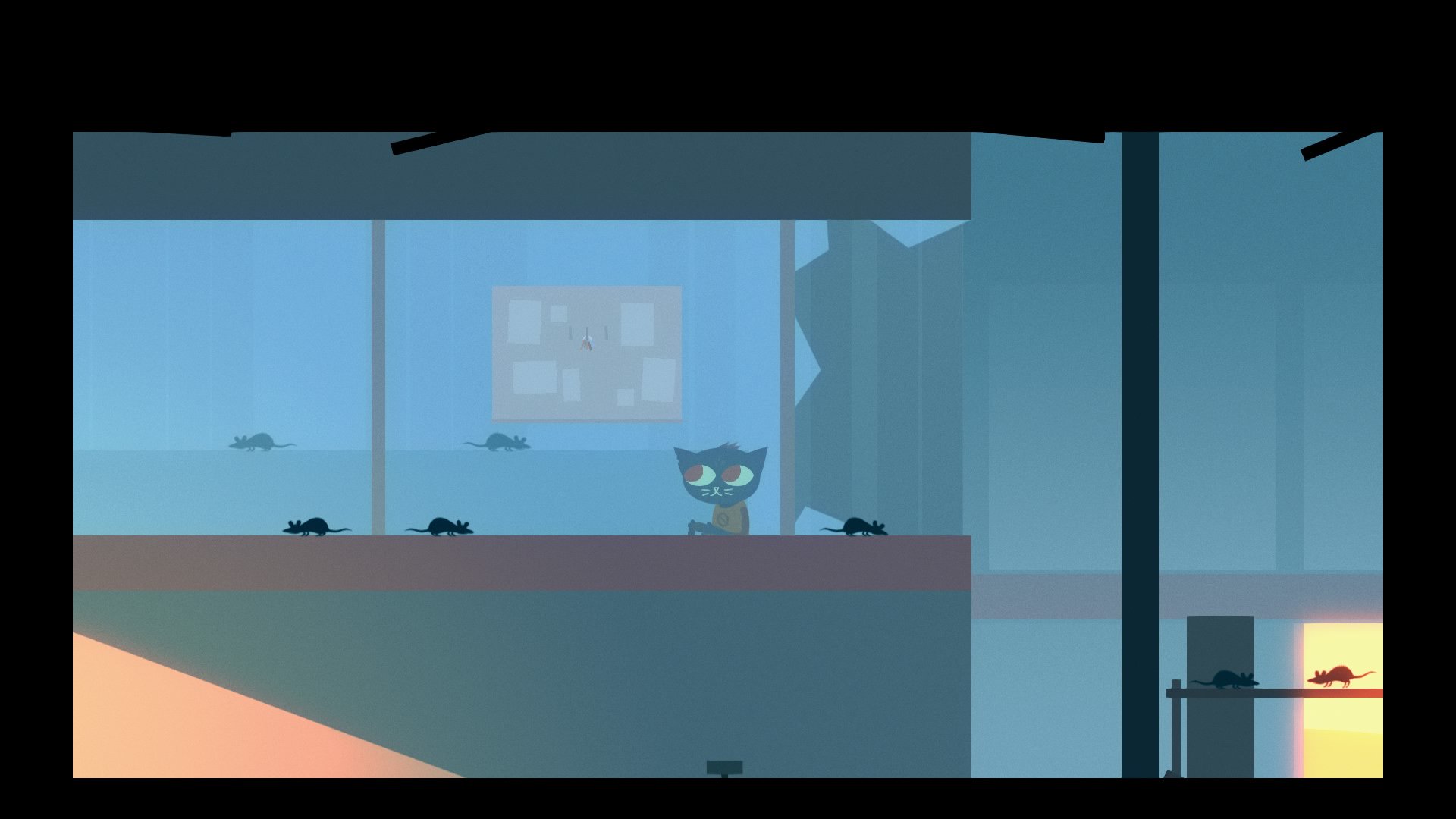You have just read a blog post written by Jason McIntosh.
If you wish, you can visit the rest of the blog, or subscribe to it via RSS. You can also find Jason on Twitter, or send him an email.
Thank you kindly for your time and attention today.

The morning after, I feel I wrote too harshly about poor Mae, the protagonist of Night in the Woods. While I stand by my calling her naive, I also implied that she showed cowardice, what with the whole story kicking off by her bailing out of college, trying to recapture her sweet teenage doldrums from her parents’ attic bedroom. I want to walk that back.
Without spoiling the specific things about herself or her hometown that Mae discovers in Night in the Woods, I can still say that by the end of the story she makes it clear that her motivation for coming back home was larger than any basic fear of growing up. She wasn’t ready to leave yet, a year before the story begins, but she did so anyway, carried forward by the enormous pressure behind any first-of-her-name college freshman following her parents’ 18-year plan. In an inverted but real way, her dropping out represented an act of courage, a recognition that she had drifted off-track and needed a reset.
Of course she has no idea how to stick the follow-through; for the first time in her life, she finds herself without a script. And the story of Night in the Woods picks up from this point. And the story is this: look to your family, and find your friends. The story is front-to-back how Mae reconnects with the people she loves of Possum Springs, at first as an overgrown kid, but by the end as a young adult with a basic idea of where she is, who supports her, what problems she faces, and where she can go next. She left her friends too soon, on someone else’s schedule, and you and she spend your time together mending this tear. What she does afterwards is Mae’s business alone. I like to think that she finds her way back to school, on her own terms. But Mae was right to come home and fix the damage first, even if she had no idea why at the time.
One other, unrelated observation (and this contains a very minor spoiler): the sole note I wrote down while playing was “Jesus has baggage”. By this I referred to the slow dawning I experienced that the characters of Night in the Woods, while absolutely living in an analogue of a dim Pennsylvanian ex-mining town and possessing all the cultural referents so implied, don’t practice Christianity per se but a sort of alternate-history-American monotheism. The game stays very deliberate in the distinction. In both the church and the graveyard, one encounters a sun-shaped symbol where one would expect to find a cross, and the people celebrate not Christmas but “Longest Night”, a holiday that clearly serves the same winter-solstice purpose. But the big building in the middle of town is still called a church, its quiet pastor guiding her flock as best she can in ways I found achingly familiar.
Mae, practicing the same lazy-lapsed religion of all her peers as well as most everyone I grew up around in real life, has conversations about God with the pastor and others, especially after events in the story take a stranger turn. But nobody mentions Jesus per se, or any other more specific divine figure. I’d love to ask the game’s writers about this sometime, but for now I appreciate how they went to lengths to make faith present but abstract, to keep a story ultimately about the importance of human relationships grounded by avoiding the distraction of implicating any capital-C Church through invoking any proper-named aspect — other than the Big G at its largest, and most vague.
To share a response that links to this page from somewhere else on the web, paste its URL here.